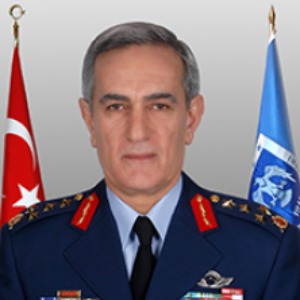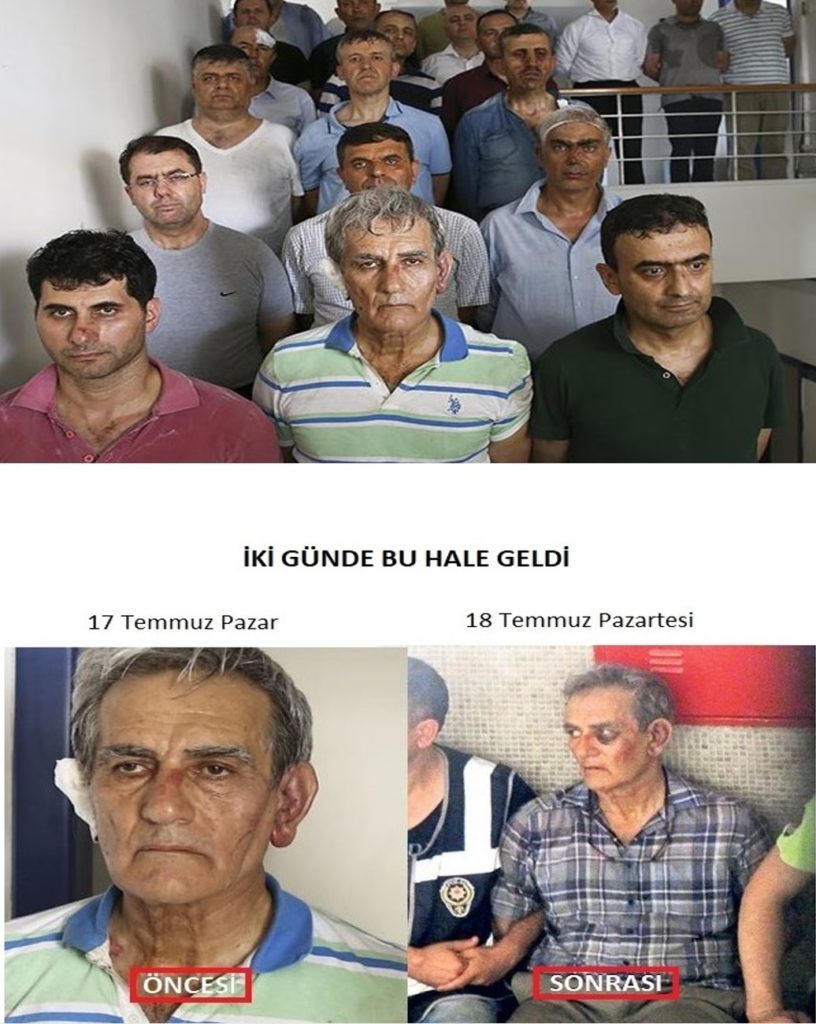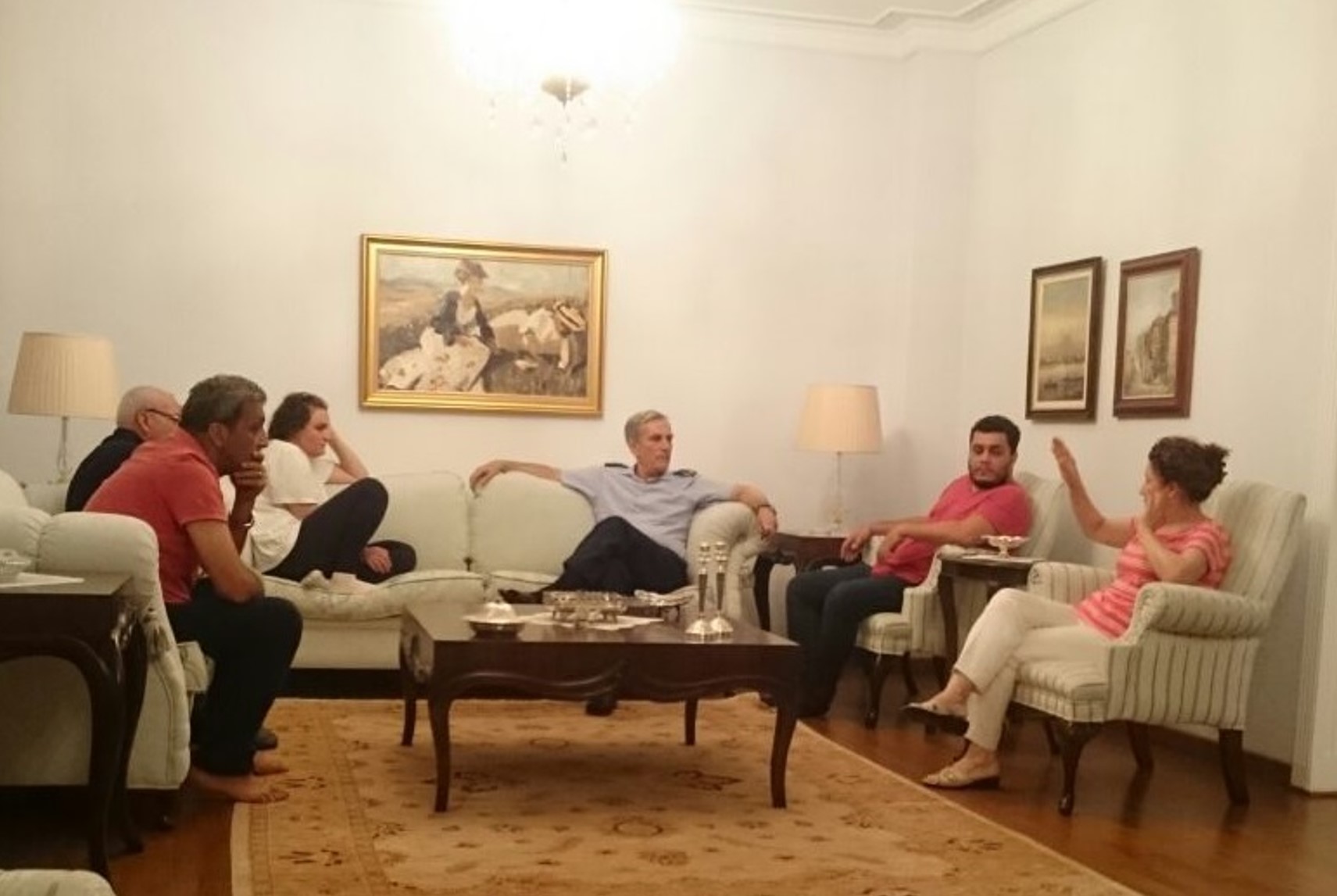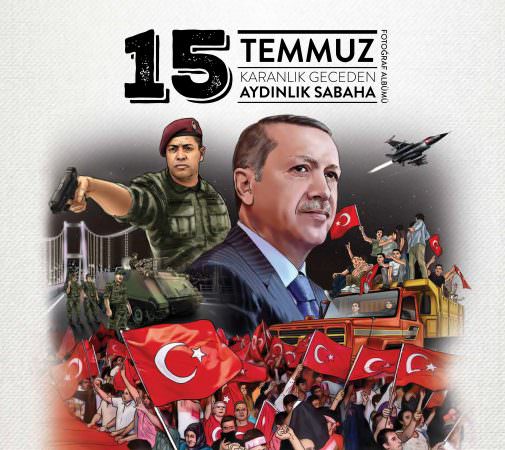Levent Kenez/Stockholm
The United Nations Human Rights Council’s Working Group on Arbitrary Detention has issued a striking opinion on Turkey’s incarceration of former air force commander Gen. Akın Öztürk, declaring his detention unlawful and devoid of reasonable suspicion. A highly decorated military officer, Öztürk served as commander of the Turkish Air Force from 2013 to 2015 and was later appointed to the High Military Consultative Council. He was accused of being the “number one” figure behind a coup attempt on July 15, 2016.
The opinion also undermines the official narrative of the government of Turkish President Recep Tayyip Erdogan regarding the abortive putsch, of which Öztürk was accused of being a key orchestrator.

According to the working group’s opinion, adopted at its 100th session between August 26 and 30, 2024, the Turkish government failed to provide sufficient evidence to justify Öztürk’s continued imprisonment. The ruling calls for his immediate release, reparation for his wrongful detention and an investigation into those responsible for violations of his rights.
The working group’s findings cast significant doubt on the Turkish government’s portrayal of the 2016 coup attempt. Öztürk, who was sentenced to 141 aggravated life terms and thousands of years in prison, was held without credible evidence, the UN body stated. The decision also highlights that the Turkish judiciary failed to adhere to international fair trial standards, further eroding confidence in the legal proceedings surrounding the post-coup purges.
The opinion details how Öztürk had been on vacation at the time of the coup attempt and returned to Ankara only due to a family emergency. Testimonies, including those from Turkey’s own military leadership, indicated that he was acting under orders to defuse the crisis rather than instigate it. The UN panel noted that Turkish authorities failed to refute these claims convincingly.
The working group detailed numerous human rights violations during Öztürk’s detention. Reports documented that he was subjected to physical abuse, including being stripped, beaten and deprived of basic necessities while in police custody. He was also denied access to independent legal representation, with a state-appointed lawyer assigned to his case. The UN opinion classified his detention as arbitrary, citing a lack of legal basis and severe breaches of due process.
Text of The United Nations Human Rights Council’s Working Group’s opinion on Akın Öztürk:
According to the UN opinion, he was stripped naked, repeatedly beaten and forced to squat or kneel for extended periods. Acid was poured on his fingernails, and he endured continuous verbal abuse. He was denied sleep, food and access to basic sanitation, while being kept in a brightly lit environment at all times. Additionally, Öztürk was deprived of medical care and legal representation, with authorities allegedly instructing officers to give him “special treatment,” which resulted in further physical and psychological abuse.

Nordic Monitor previously reported that Elif Uzun Sümercan, who was deputy chief of the Ankara Police Department’s counterterrorism unit in 2016, was accused of physically assaulting Gen. Öztürk. Witnesses who had experienced torture and mistreatment at the detention center testified that police officers had to intervene to stop her physical assault of the general. However, she was later rewarded by the government and appointed a department head at the Ministry of Culture and Tourism.
A Turkish court in 2023 ordered the blocking of websites and social media posts, including those from Nordic Monitor’s X account, referencing the story that involved Sümercan, accused of abusing and mistreating Öztürk at a detention site in Ankara in 2016.
According to witness testimony verified by Nordic Monitor, soldiers held in custody at the detention center were told, “You are here because of Öztürk, and now, on our command, you will attack him.” It was revealed that Öztürk, who was stripped naked at the time, was then brutally beaten by the soldiers under orders from the authorities.

Evidence has since come to light confirming that Öztürk had no involvement in the failed coup and that he was falsely labeled as the leader of the putschists by Turkish intelligence agency MİT. In reality, during the events on the night of the coup, he was at his daughter’s home, which was several kilometers from Akıncı Airbase, the alleged headquarters of the putschists.
Additionally, the panel condemned the trial proceedings, noting that judges disregarded defense arguments, excluded exculpatory evidence and ignored widespread reports of torture used to extract confessions. The opinion specifically pointed out that critical evidence, including unedited CCTV footage from the night of the coup, was either withheld or altered, further compromising the integrity of the legal process.
The UN panel has urged Turkey to release Öztürk without delay and to provide reparations for the harm caused. The opinion also calls for an independent investigation into those responsible for his arbitrary detention and mistreatment. The recommendation adds to growing international scrutiny of Turkey’s mass detentions following the coup attempt, which have drawn criticism from human rights organizations and foreign governments.
Turkey has yet to issue an official response to the opinion. However, in previous cases of UN opinions on arbitrary detentions, Ankara has largely dismissed such findings as politically motivated.
Following the coup attempt in 2016, Erdogan consolidated his power and became stronger as a leader who controls the judicial, legislative and executive branches of government.
Just hours after the coup attempt began in 2016, the Erdogan government launched a mass purge, removing 4,156 judges and prosecutors from public service, suggesting that these judges and prosecutors had likely been profiled in advance. The vacancies left by the purge were quickly filled with partisans and loyalists, many of whom were recruited from the ranks of the ruling Justice and Development Party (AKP).
Many believe that during the state of emergency declared after the failed coup, he established one-man rule by means of emergency decree-laws subject to neither judicial nor parliamentary scrutiny. Opposition groups claim that the coup attempt was also a false flag operation organized to purge Erdogan’s opponents. More than 130,000 public servants as well as 24,706 members of the armed forces were removed from their jobs.
Currently, individuals affiliated with the Gülen movement — a group critical of the government, which the Erdogan administration claims was behind the coup attempt — are still being detained and arrested on trumped-up charges.












